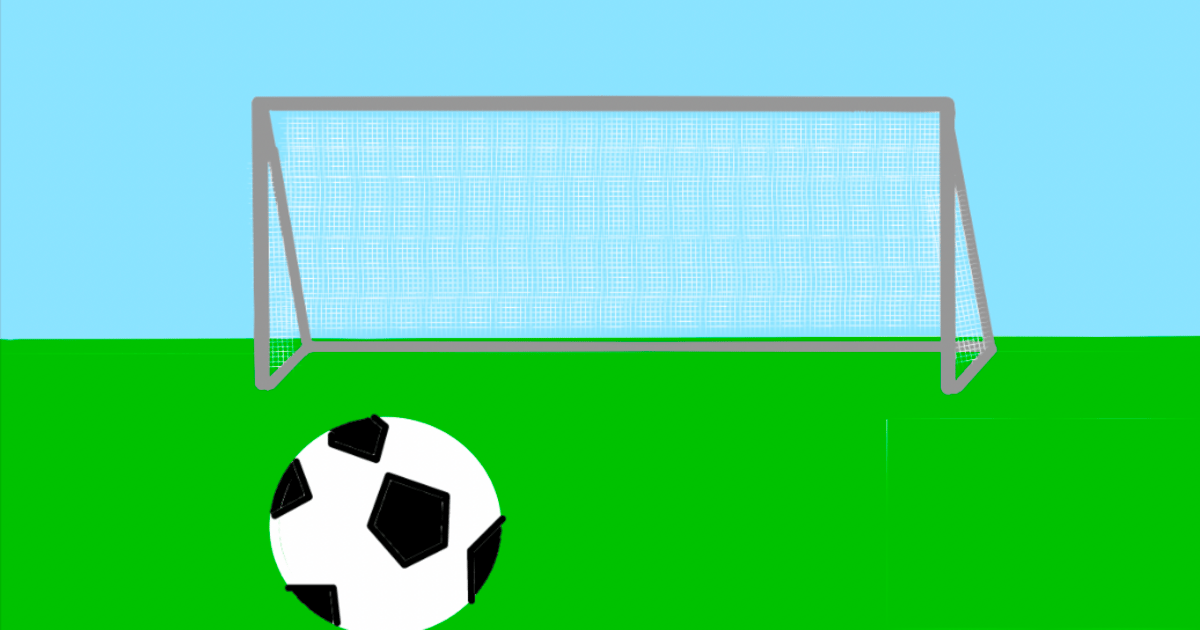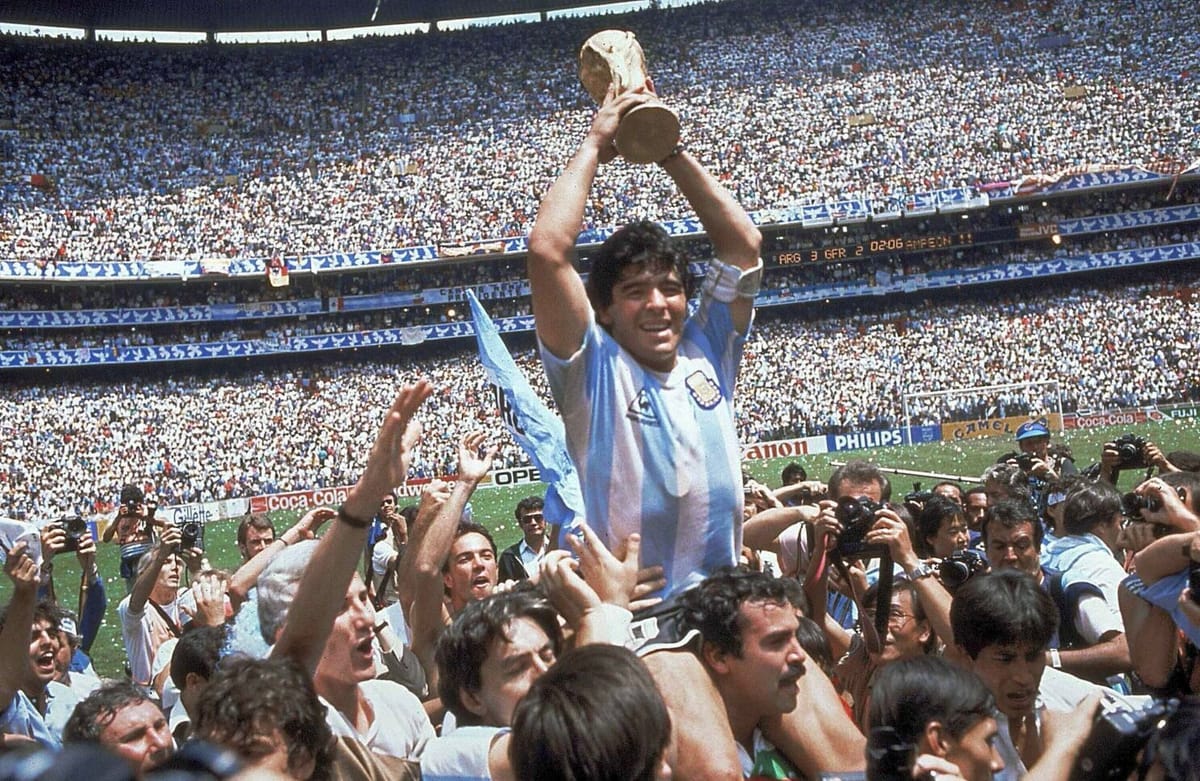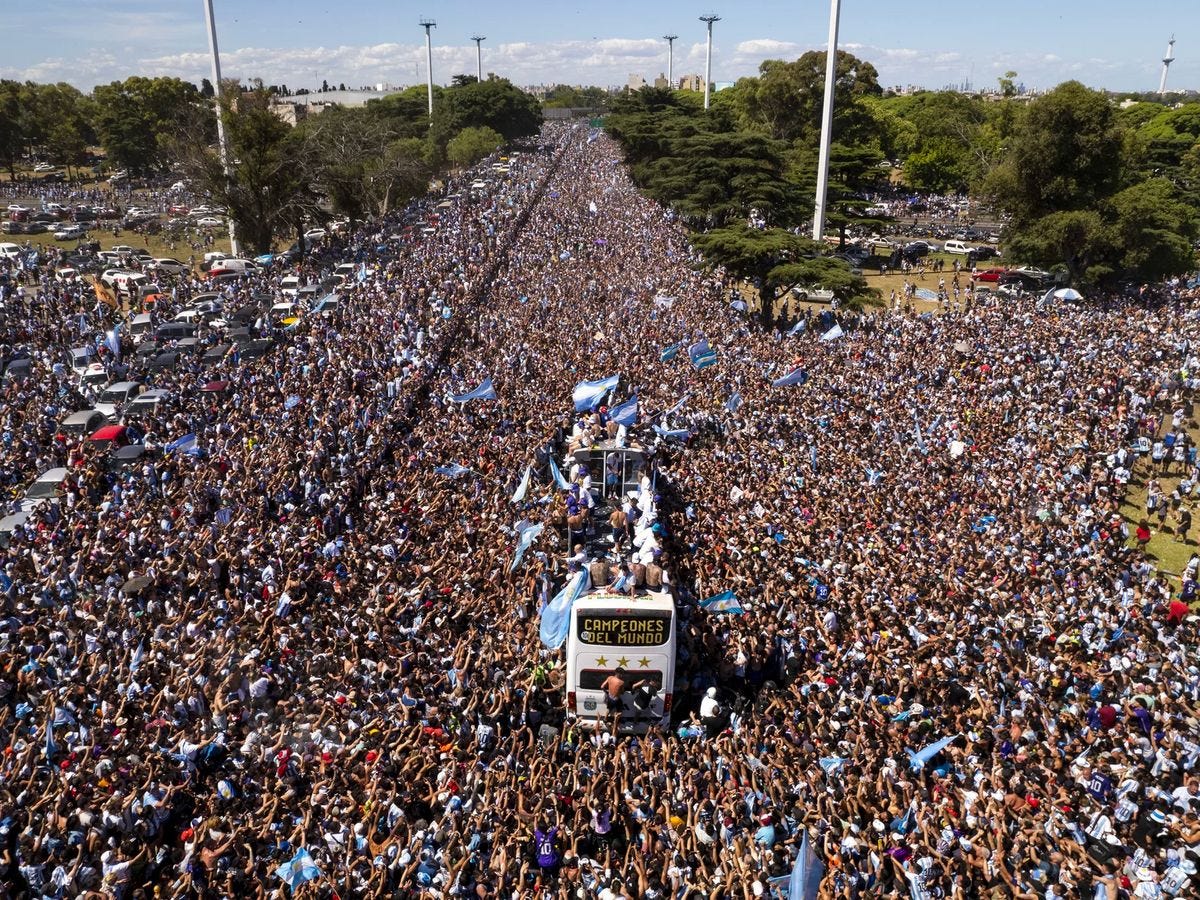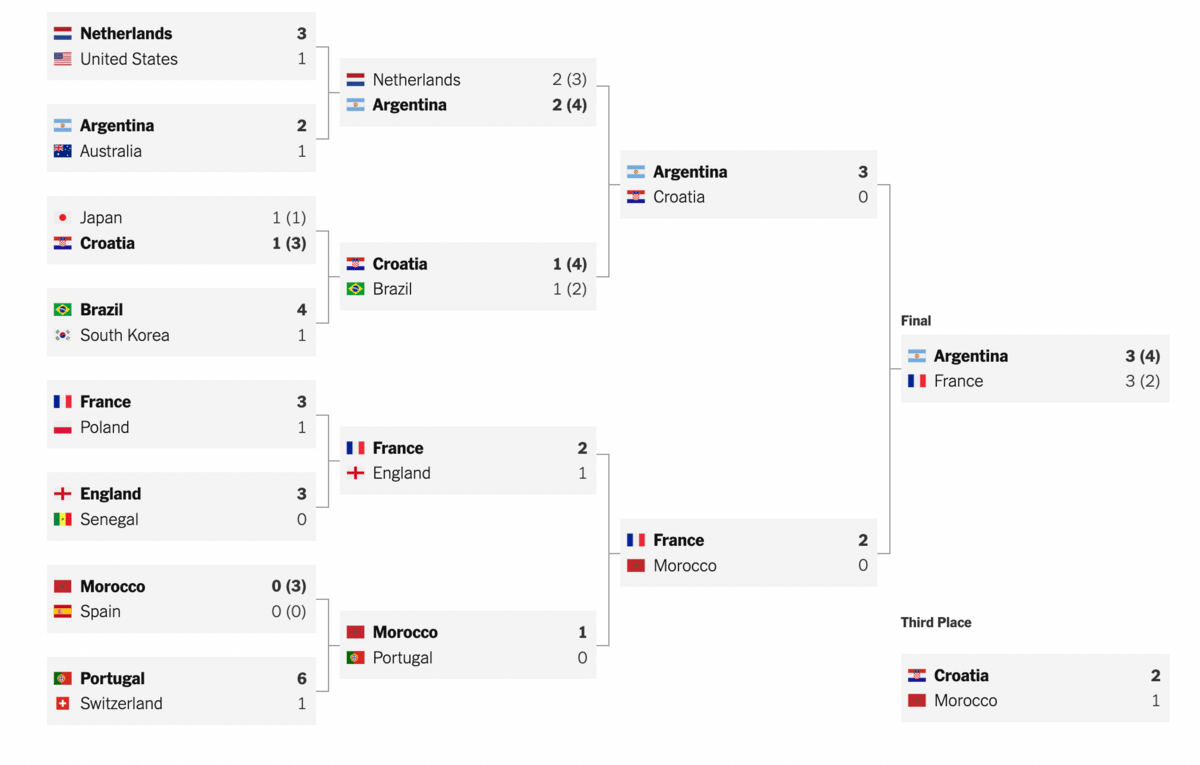Welcome to Young Money! If you’re new here, you can join the tens of thousands of subscribers receiving my essays each week by adding your email below.
In 1986, a Diego Maradona-led Argentina squad won its 2nd World Cup in 8 years, defeating West Germany in the championship round of football's most prestigious tournament. Maradona became a god among men, deified to this day by his fellow Argentines.
28 years later, a new Argentine had ascended to the top of the football world. Lionel Messi, a then-four-time Ballon d'Or winner with FC Barcelona, had led the South American nation back to the World Cup finals. In a matchup that conjured memories of the past, Argentina faced none other than Germany.
Argentina dreamed of history repeating itself, but Messi would be denied his spot on the first-place podium as Germany went on to win 1-0 in overtime.
In 2018, a 31-year-old Messi would bring his squad back to the World Cup in Russia, only to be eliminated in a 4-3 first-round loss to France, the eventual tournament winners.
This brings us to 2022. After a shocking opening-match loss to Saudi Arabia, Argentina stormed back, making light work of Mexico and Poland to advance to the knockout stage. There, they defeated Australia, The Netherlands, and Croatia to set the stage for a rematch with none other than France, the team that had sent them home early four years prior.
In this rematch, Argentina took an early 2-0 lead, and the game looked to be all but over until France's Mbappé scored back-to-back goals in the 80th minute, sending the match to extra time.
In the 108th minute, with the clock winding down, Messi put his squad up 3-2 with what appeared to be the game-winner, but Mbappé scored his 3rd goal of the night in the 118th minute, notching the first World Cup finals hat trick in 56 years and sending the game to a penalty shootout.
Spectators around the world held their breath as the teams lined up for penalty kicks. Mbappé and Messi exchanged goals, but a key save by Argentina's keeper, Emi Martínez, sealed the victory, and Argentina claimed its first World Cup title since 1986.
The victors returned home with their new hardware, and their fellow Argentines gave them one hell of a greeting.
We live in a world where money, power, and influence can purchase most things. A family friend can make all the difference in landing a banking gig over a more qualified applicant or gaining acceptance to an Ivy League university. A silver-tongued lobbyist can change the code of law. A nine-figure check can purchase the winning bid to host the World Cup over countries like the United States, England, Australia, and South Korea.
And we hate the advantage that money and power provide, which is why we love underdog stories so much.
We love when the paradigm reverses, and those without money, power, and influence win. Think about the books and movies that really catch fire. Luke Skywalker and a ragtag band of rebels defeating the empire. An orphaned, scar-headed Harry Potter saving the world from the evil force that killed his parents. District 12's Katniss Everdeen winning the Hunger Games.
We love those underdog stories because they run counter to our realities. In a world dominated by money and power, we like to imagine that, against all odds, the underdog still has a chance.
If you list the world's countries by GDP per capita, Argentina sits at 62nd, wedged between Russia and Malaysia. For reference, Croatia, France, The Netherlands, and Australia are ranked 55th, 24th, 13th, and 9th, respectively.
And yet:
Economy be damned, Argentina was crowned champion. Sports, especially on the international stage, are so awesome for so many reasons.
From Rio, to London, to Sydney, to New York, fans gather in neighborhood bars to watch their home teams take the field. History intertwines with the present as new chapters of century-old rivalries are written, and players have the opportunity to carve their legacies in stone. Players, coaches, and spectators alike experience the full range of emotions from ecstasy to misery through victory and defeat, and we are all able to witness the human body pushed to its limits through Herculean performances.
But the greatest thing about sports? They force us to compete as equals.
When you walk on the pitch, it doesn't matter if you were born into the Parisian aristocracy or a miseria villa in Buenos Aires. Your last name doesn't matter. The color of your skin doesn't matter. Your wealth doesn't matter. For 90 minutes, only one thing matters: can you score more goals than your opponent?
- Jack
I appreciate reader feedback, so if you enjoyed today’s piece, let me know with a like or comment at the bottom of this page!
Young Money is now an ad-free, reader-supported publication. This structure has created a better experience for both the reader and the writer, and it allows me to focus on producing good work instead of managing ad placements. In addition to helping support my newsletter, paid subscribers get access to additional content, including Q&As, book reviews, and more. If you’re a long-time reader who would like to further support Young Money, you can do so by clicking below. Thanks!







